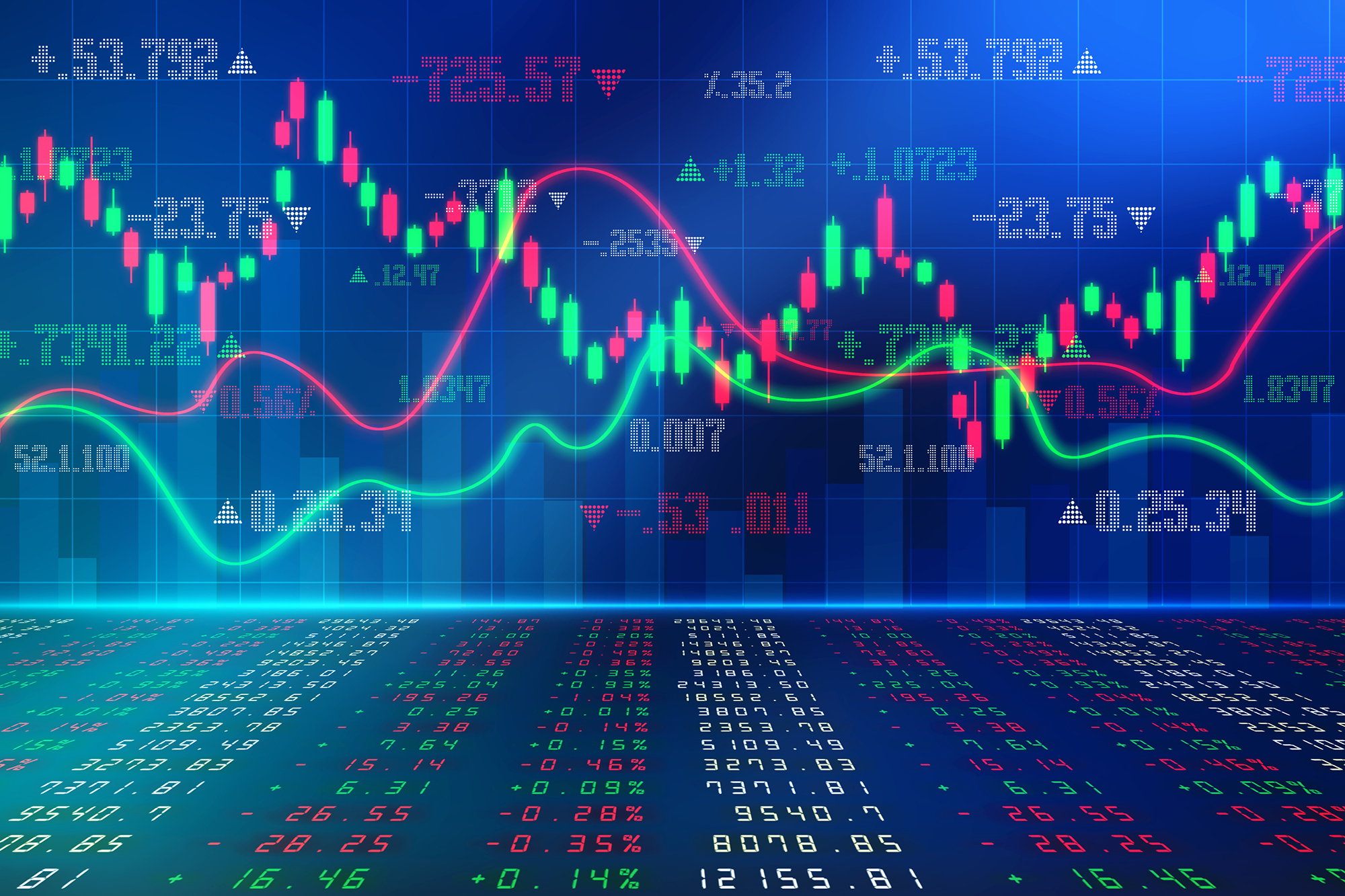
8 minute read
Is Forex Trading Banned in China? Let’s Break It Down
from Exness
by Exness Blog
If you’re wondering, “Is forex trading banned in China?” the short answer is no, it’s not banned, but it’s heavily regulated, and navigating the rules can feel like threading a needle. China’s forex market is a unique beast, shaped by strict government oversight aimed at protecting the economy and controlling capital outflows. In this article, I’ll walk you through the ins and outs of forex trading in China, the regulations you need to know, the risks involved, and how you can trade safely and legally. Let’s dive right in!
Top 4 Best Forex Brokers in China
1️⃣ Exness: Open An Account or Visit Brokers 🏆
2️⃣ XM: Open An Account or Visit Brokers 💥
3️⃣ JustMarkets: Open An Account or Visit Brokers ✅
4️⃣ Quotex: Open An Account or Visit Brokers 🌐
The Legal Status of Forex Trading in China
Forex trading, the act of buying and selling currencies to profit from exchange rate fluctuations, is perfectly legal in China—but with a catch. The Chinese government, through the People’s Bank of China (PBOC) and the State Administration of Foreign Exchange (SAFE), imposes tight regulations to maintain financial stability and prevent capital flight. These rules create a controlled environment that’s very different from the freer markets in Western countries.
Here’s the deal: Chinese citizens can trade forex, but only through specific channels, like commercial banks or regulated offshore brokers. Domestic forex brokers? Nope, they’re not allowed to operate. Leverage, which lets traders amplify their positions, is also banned for retail traders. This means you’re trading with your own money, no borrowing allowed. These restrictions aim to curb speculative trading and keep the Chinese yuan (CNY) stable.
Why Is China So Strict About Forex Trading?
China’s cautious approach to forex trading stems from its broader economic policies. The government wants to control the flow of money leaving the country to protect the yuan’s value and prevent economic instability. Massive capital outflows could weaken the currency, which is a big no-no for a global economic powerhouse like China.
The PBOC and SAFE are the gatekeepers here. They monitor all forex transactions, enforce annual currency exchange limits (currently $50,000 per person), and crack down on illegal activities like underground banking. In recent years, they’ve also tightened scrutiny on cross-border financial activities, including those involving cryptocurrencies, to prevent traders from bypassing forex controls. For example, a 2023 Reuters report noted that China banned domestic brokerages from opening new offshore accounts to curb capital outflows.
On top of that, China’s Great Firewall blocks many foreign broker websites, making it trickier for traders to access international platforms. While some traders use VPNs to get around this, it’s a risky move since VPN regulations are also tightening.
How Can You Trade Forex Legally in China?
So, how do you trade forex in China without stepping on legal landmines? Here’s a step-by-step guide to doing it the right way:
1. Choose a Regulated Offshore Broker
Since domestic forex brokers are banned, you’ll need to work with offshore brokers regulated by reputable authorities like the Financial Conduct Authority (FCA) in the UK, the Australian Securities and Investments Commission (ASIC), or the Cyprus Securities and Exchange Commission (CySEC). Brokers like Exness, IC Markets, and XM are popular among Chinese traders for their Chinese-language support and reliable platforms.
Pro Tip: Always verify the broker’s regulatory status. Unregulated brokers can scam you or disappear with your funds.
2. Use Approved Payment Methods
China’s strict capital controls mean you can’t just transfer money to any offshore account. Stick to approved payment methods like China UnionPay, which is backed by the PBOC and widely accepted by international brokers. Other options include e-wallets like Skrill or Neteller, and some brokers even accept WeChat Pay or Alipay. Cryptocurrency payments are another option, but they’re risky due to China’s crackdown on crypto-related forex trading.
3. Stay Within the $50,000 Annual Quota
Chinese citizens are limited to exchanging $50,000 worth of yuan into foreign currencies each year. This quota applies to forex trading, overseas travel, education, and other purposes. Exceeding this limit can trigger investigations, fines, or even criminal charges, so keep track of your transactions.

✅ Trade with Exness now: Open An Account or Visit Brokers 👈
4. Avoid Leverage and Margin Trading
Leverage is a no-go for retail traders in China. If you’re trading through a commercial bank, you’ll be dealing with spot forex trading without any borrowing. Offshore brokers might offer leverage (sometimes up to 400:1), but using it could put you in a legal gray area. Play it safe and trade with your own funds.
5. Stay Updated on Regulations
China’s forex rules change frequently, so you need to stay on top of updates from the PBOC and SAFE. Following financial news or joining trading communities can help you stay informed about new restrictions or enforcement actions.
The Risks of Forex Trading in China
Forex trading in China isn’t just about navigating regulations—it’s also about managing risks. Here are the biggest challenges you’ll face:
· Legal Penalties: Trading with unlicensed brokers or exceeding the $50,000 quota can lead to serious consequences, including fines, account freezes, or criminal charges. In 2020, Shanghai police arrested 150 people involved in illegal forex trading operations worth over 1.54 billion yuan ($219 million).
· Scam Brokers: Unregulated brokers are a huge risk. Some manipulate trades or vanish with your money. Always research a broker’s reputation and read reviews from other traders.
· Internet Restrictions: China’s Great Firewall blocks many foreign broker websites. Using a VPN to access these sites might work, but it’s a legal gray area, and penalties for non-compliant VPN use are increasing.
· Capital Flight Concerns: Moving large sums to offshore accounts can raise red flags with regulators. Even legal transactions are closely monitored, so transparency is key.
Opportunities for Chinese Forex Traders
Despite the restrictions, there’s still plenty of potential for forex trading in China. The global forex market is massive, with a daily trading volume exceeding $7 trillion, and Chinese traders can tap into it with the right approach. Here’s how to make the most of it:
· Use Reputable Offshore Brokers: Brokers like Eightcap and AvaTrade offer Chinese-language platforms, advanced tools like Capitalise AI for algorithmic trading, and payment options like China UnionPay. These brokers are regulated and cater specifically to Chinese traders.
· Focus on Education: China’s tech-savvy traders are embracing algorithmic trading and copy trading. Platforms like TradingView (with over 50 million users) let you connect with global trading communities and learn new strategies.
· Trade Popular Pairs: Since the yuan isn’t widely available for retail trading, pairs like AUD/USD are popular proxies among Chinese traders. These pairs offer liquidity and tight spreads, making them ideal for beginners.
· Islamic Accounts for Some Traders: China has a large Muslim population, and brokers like XM and FXTM offer Sharia-compliant accounts with no swap fees, which are popular among Muslim traders.
Recent Updates on Forex Trading in China
China’s forex regulations are constantly evolving. Here are some key updates from the past few years:
· 2023 Crackdown on Offshore Accounts: The China Securities Regulatory Commission (CSRC) banned domestic brokerages from opening new offshore accounts for mainland clients to prevent bypassing外汇 controls. Existing clients’ investments are also under stricter monitoring.
· Cryptocurrency Restrictions: In December 2024, SAFE introduced new rules requiring banks to flag risky trades involving cryptocurrencies, making it harder to use digital assets to evade forex controls. Converting yuan to crypto for forex trading is now explicitly illegal.
· Increased Scrutiny on Illegal Trading: Police reports from 2023 highlighted a massive 15.8 billion yuan money laundering case involving cryptocurrencies and illegal forex trading, showing China’s commitment to cracking down on illicit activities.
Tips for Safe and Successful Forex Trading in China
To thrive in China’s forex market, you need to be strategic and cautious. Here are some practical tips:
1. Do Your Homework: Research brokers thoroughly. Check their regulatory status and read user reviews to avoid scams.
2. Manage Your Risk: Without leverage, your trades are less risky, but you still need a solid risk management plan. Never invest more than you can afford to lose.
3. Stay Compliant: Stick to the $50,000 annual quota and use approved payment methods. Avoid shady practices like underground banking or unregulated brokers.
4. Keep Learning: The forex market is complex, so invest time in learning technical analysis, market trends, and trading strategies. Platforms like Octa offer educational resources tailored for Chinese traders.
5. Monitor Regulatory Changes: Follow updates from the PBOC and SAFE to avoid getting caught off guard by new rules.
The Future of Forex Trading in China
China’s retail forex market has massive potential. Experts estimate that if deregulated, it could surpass Japan’s and become the world’s largest, given the country’s huge population and appetite for speculative trading. But for now, significant reforms seem unlikely. The government’s focus remains on financial stability, and recent crackdowns on crypto and offshore trading show they’re doubling down on control.
That said, Chinese traders are resourceful. Many continue to access the global forex market through regulated offshore brokers, using approved payment methods and staying within legal limits. As China’s economy evolves, we might see gradual liberalization, but don’t hold your breath for sweeping changes anytime soon.
Final Thoughts
Forex trading in China is legal but comes with strict rules that require careful navigation. By choosing regulated offshore brokers, using approved payment methods, and staying updated on regulations, you can trade safely and tap into the world’s largest financial market. Yes, the restrictions are tough, but with the right approach, you can still find opportunities to profit.
✅ Trade with Exness now: Open An Account or Visit Brokers 👈
Read more:










